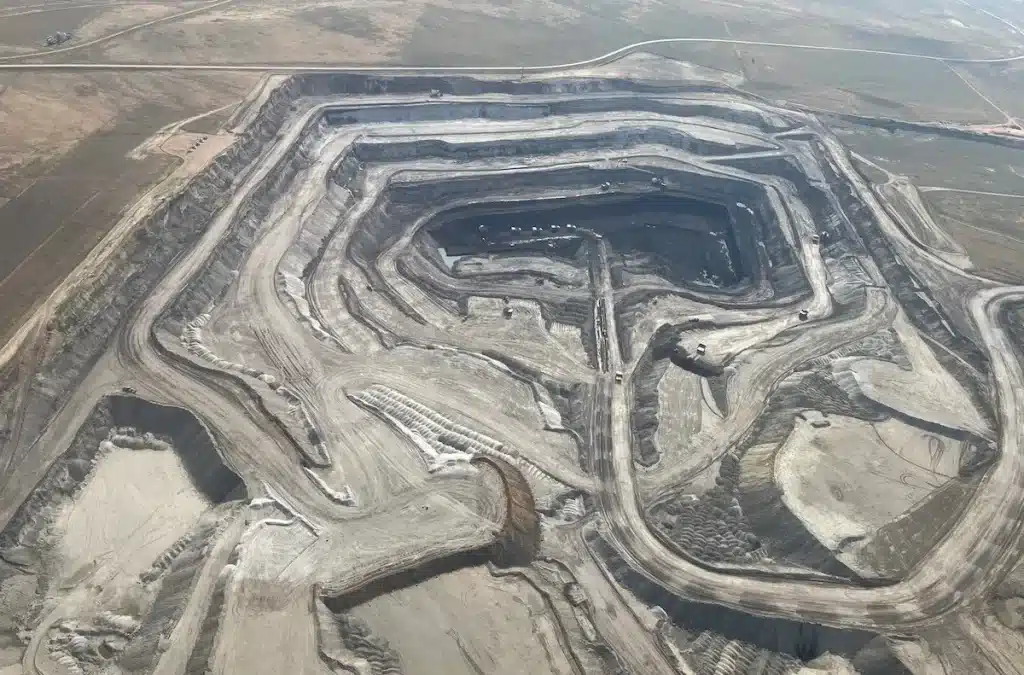Federal officials indefinitely postponed a Wyoming coal lease sale scheduled for Wednesday, apparently in response to what many observers consider a lowball bid on another federal coal lease on Monday in Montana.
Navajo Transitional Energy Company, the only bidder, stunned coal market watchers with an offer of $186,000 for 167 million tons of federal coal associated with its Spring Creek mine in southeast Montana — a fraction of a penny per ton and woefully low compared to past federal coal lease sales in the region. The last such major sale in the region, in 2012, netted $793 million for 721 million tons, or about $1.10 per ton, according to federal data.
Navajo Transitional was also in the queue to bid on the 441 million-ton West Antelope III federal coal lease associated with its Antelope coal mine spanning Campbell and Converse counties in Wyoming.
Bureau of Land Management and Interior Department officials are still reviewing the Spring Creek bid, and those close to the process expect that another date will be set for the West Antelope III coal lease sale.

“While we would have liked to see stronger participation, this sale reflects the lingering impact from Obama and Biden’s decades long war on coal which aggressively sought to end all domestic coal production and erode confidence in the U.S. coal industry,” the Interior wrote in an email responding to a WyoFile inquiry. “Fortunately, President [Donald] Trump and his administration are rebuilding trust between industry and government as part of our broader effort to restore American Energy Dominance.”
But others say market forces — including cheap natural gas and increasingly efficient wind and solar energy — are bigger factors.
Others note that the coal industry itself sees the writing on the wall. If a fraction-of-a-penny bid is any indication, some critics say, the thermal coal industry — which relies on U.S. coal-burning power plants — isn’t yet confident that Trump’s policies will turn around years of market decline.
“It tells you that there’s no competition for that coal in the ground, and it’s not worth very much money,” Institute for Energy Economics and Financial Analysis Energy Data Analyst Seth Feaster told WyoFile on Wednesday. “It points to the fundamental, structural decline the coal industry is facing — for thermal coal — and that story hasn’t been reversed, despite all the things that they’re talking about.”

The postponement in Wyoming and lackluster offer in Montana come just days after the Trump administration touted sweeping regulatory rollbacks and $625 million in federal spending to revitalize “clean, beautiful coal.”
Navajo Transitional tried to set expectations regarding Powder River Basin coal’s market value back in September, urging the U.S. Bureau of Land Management to set its minimum bid requirement for the West Antelope III coal lease much lower than comparable leases in the past. Neighboring Powder River Basin coal operator, CORE Natural Resources, echoed that sentiment and told BLM officials, “the fair-market value of coal in the Powder River Basin will remain soft for the next number of years.”
Gov. Mark Gordon has said recently that Trump’s efforts to revive the coal industry will take some time to bear fruit. He has also underscored the administration’s notion that expanding the coal industry is necessary to meet increasing electricity demand, mostly driven by artificial intelligence and other computational facilities.
The Wyoming Mining Association declined to comment on Navajo Transitional’s Spring Creek coal lease bid, but acknowledged the industry still must reckon with 15 years of drastic market and policy shifts.
“It tells you that there’s no competition for that coal in the ground, and it’s not worth very much money.”Seth Feaster, energy industry analyst
“As we’ve not seen a lease sale in over a decade, there may be a bit of a learning curve between the agency and industry to determine value given the current market conditions, projected demand and the shift in public policy,” Mining Association Executive Director Travis Deti said.
Regardless of what coal bidders and federal officials ultimately decide is the “fair market value” for Powder River Basin coal, Deti said, it’s vital to resume leasing new tracts of coal.
“If you don’t have the coal leased, you can’t mine it and you don’t have the jobs,” Deti said.
Conservation groups have noted that existing coal leases allow mining in the region to continue at pace through 2041.



